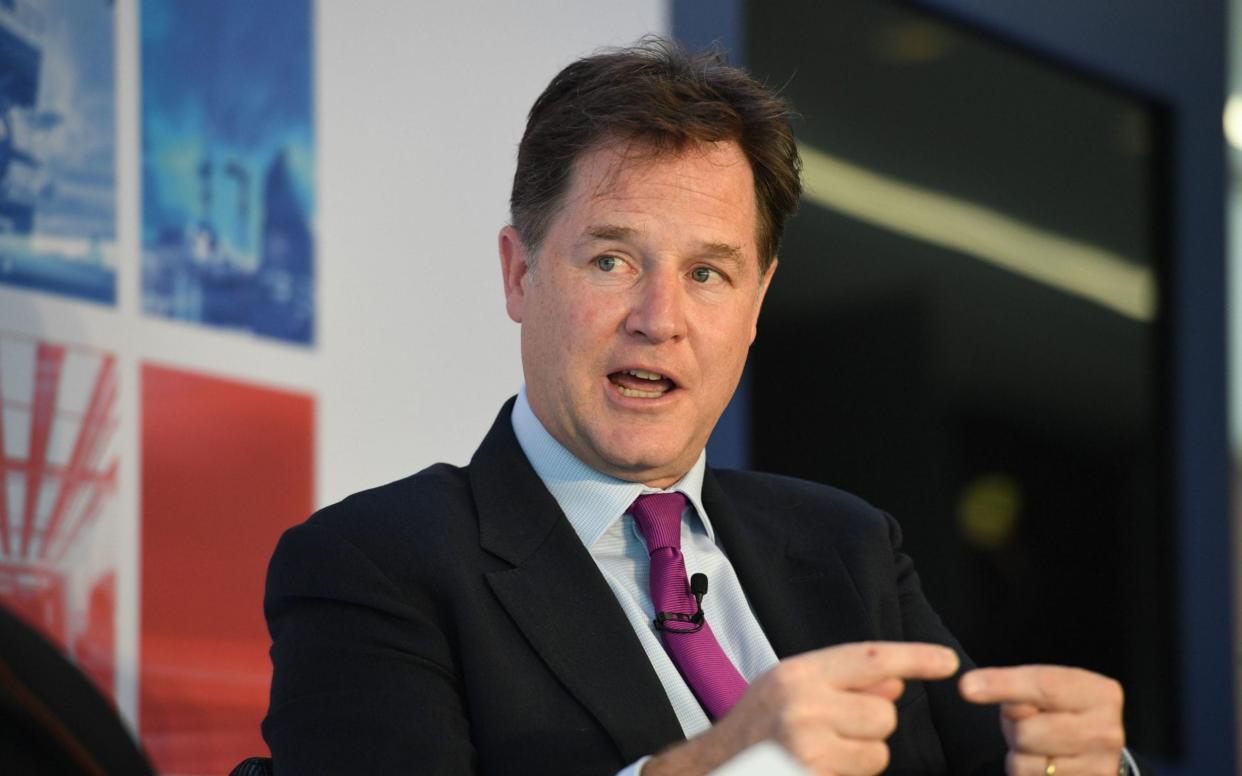Forcing Facebook to pay for news is like 'forcing car makers to fund radio stations,' claims Clegg

- Oops!Something went wrong.Please try again later.
Sir Nick Clegg has claimed that forcing Facebook to pay for news is like “forcing car makers to fund radio stations” in a bizarre defence of the tech giant’s decision to cut off newspapers in Australia.
The former leader of the Liberal Democrats, who is now Facebook’s vice president of global affairs, defended Facebook’s decision last week to block the country’s news publishers.
The shock decision, which was revoked amid a global backlash on Tuesday, came Australian politicians prepared to introduce rules that would make tech giants pay to show links to news stories.
Mr Clegg said the rules were “like forcing car makers to fund radiation stations because people might listen to them in the car - and letting the stations set the price”.
In a blog post titled "The real story of what happened with news on Facebook in Australia", he said Australia's efforts were an attempt at “camouflaging a bid for cash subsidies” by news groups.
Facebook eventually reached a deal with Australia that will see it restore online news posts from Australian newspapers. The government agreed to a compromise under its new media bargaining laws that will give technology companies more time to strike deals with publishers before they are forced into mandatory arbitration.
Regulators and politicians have rejected the arguments put forward by the former deputy prime minister and its news ban was sharply criticised by politicians after it also shut down public information and charity websites warning of the risks of coronavirus.
Sir Nick admitted the company had “over-enforced” its ban. He added Facebook planned to invest $1bn (£710m) in news over the next three years, matching Google's spending plans.
Andrea Coscelli, the head of the UK's Competition and Markets Authority, dismissed similar arguments that Facebook providing news could be similar to cars providing radios.
He told the BBC this week: “We are dealing with news, we are dealing with democracy and we are dealing with fake news. It is a different example."
Damian Collins, Conservative MP and former chair of the Digital Select Committee, said Sir Nick was “making out that Facebook is doing the news industry a favour”.
“The truth is that along with Google, the company controls 80pc of the advertising market in Australia and newspaper advertising revenues in that country have fallen by over 50pc since 2006. This has been responsible for news organisations laying off journalists, cutting back on investigations or closing down altogether.”
Last week’s move by Facebook to stop sharing news in Australia left many people rightly asking: what on Earth was all that about?
At the heart of it is a fundamental misunderstanding of the relationship between Facebook and news publishers. 🧵https://t.co/A5An9caQ70— Nick Clegg (@nick_clegg) February 24, 2021
Jamie Stone, the Liberal Democrat MP for Caithness, said: “I'm glad Mr Clegg acknowledged the importance of not punishing Facebook users for the sake of a company's spat with a democratic state. What must always be the top of a company or state's priority list is the safety and well-being of individuals.”
Sir Nick's defence of Facebook comes as the company faces renewed calls for a break-up.
Stephen Scheeler, Facebook's former head of Australia, told the Today programme: “The scale, size and influence of these platforms, particularly on our minds, our brains, and all the things that we do as citizens, as consumers, are just so powerful. Leaving them in the hands of a few, very closely controlled companies like Facebook is the recipe for disaster.”
Australia's amended legislation is expected to pass the Senate this week, despite opposition from some minor opposition parties and independent politicians who argue it disadvantages smaller news companies.
Campbell Brown, Facebook's vice president of news partnerships, said on Wednesday that the company had retained the ability to decide whether or not news appeared on its social network.

